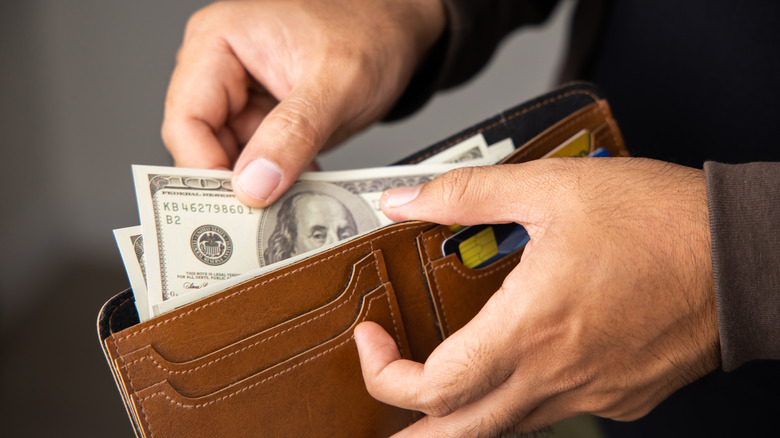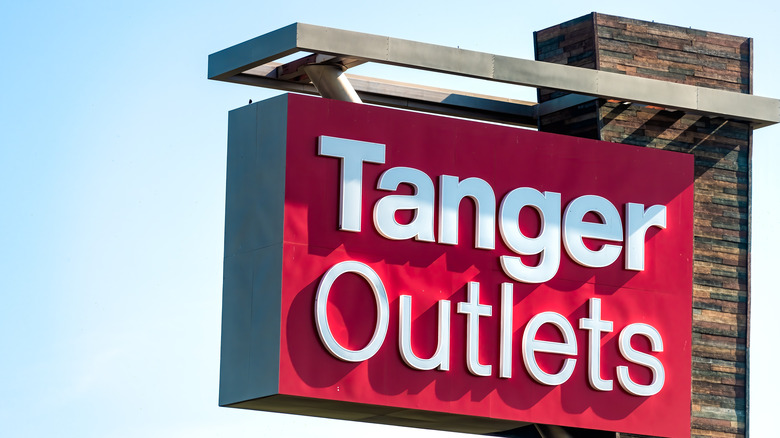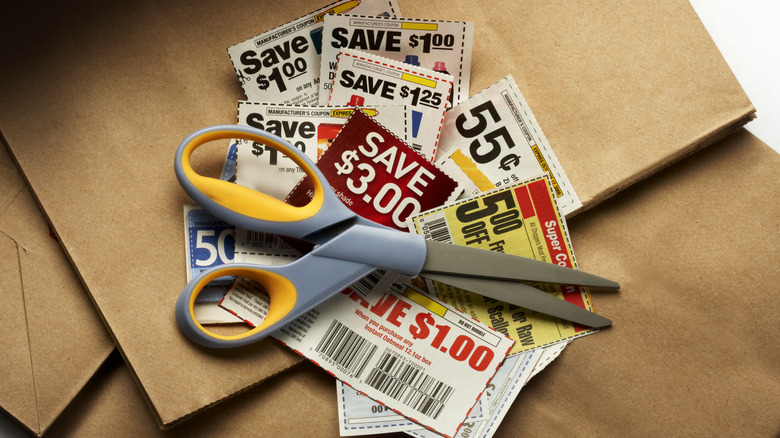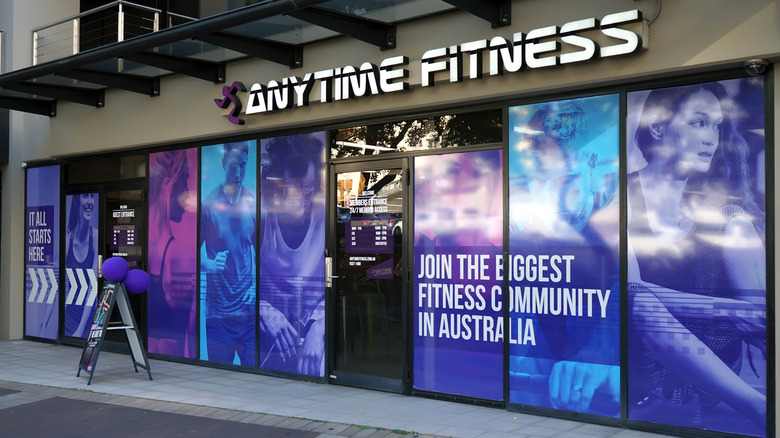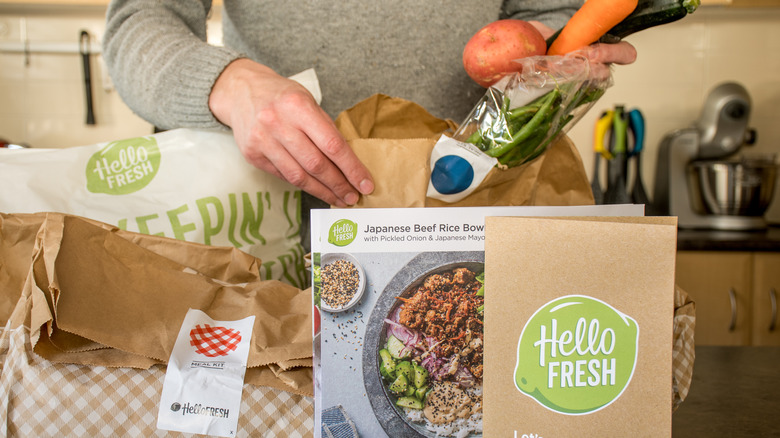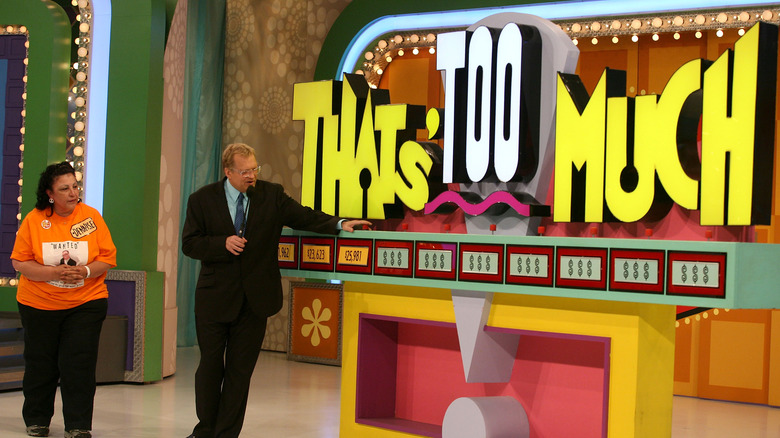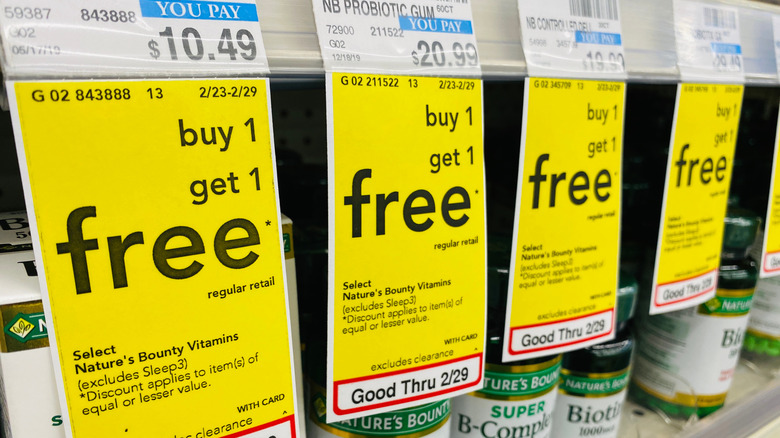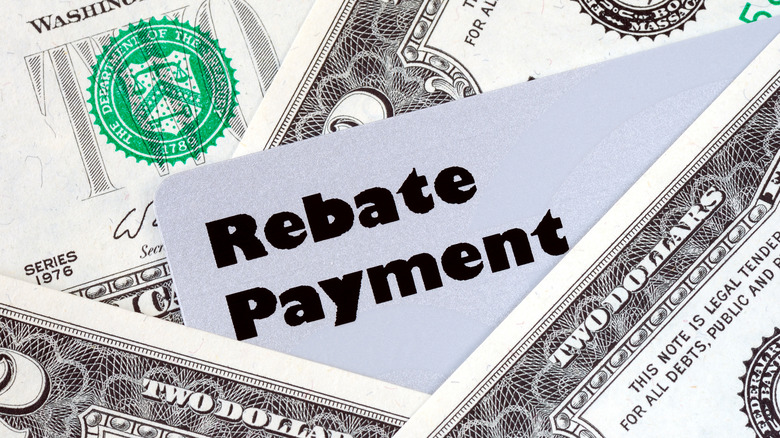Seemingly Great Deals Secretly Designed To Rip You Off
Who doesn't like saving money? But, as with anything in this world, some things are not what they seem — sometimes, when you think you've been clever with your coin, you may have made a costly mistake. Here are some of the many deals that many people have fallen for in order to save a few bucks:
Factory outlet stores and discount stores now sell lower-quality products made just for them
When factory outlet stores first started, the idea behind them was fairly straightforward. (Well, as straightforward as an industry where a size 8 can be 8 different sizes can be.) The stores were usually in the middle of nowhere, far away from typical malls, so they didn't compete with them. The outlet stores generally carried store merchandise that didn't sell, was from last season, was discontinued, or was imperfect in some way.
Fast-forward about 30 years or so. According to the Better Business Bureau, over 80 percent of the products now in outlet stores are manufactured
specifically for the stores. So you're not getting Joe Blow expensive item du jour for a steal — you are getting the lower-quality version of Joe Blow expensive item du jour. What's more, not all companies label them as such. This not only garnered attention from the BBB, but from four members of Congress, who wrote the Federal Trade Commission in 2014 to ask them to investigate.The FTC declined, but did post something on its website about what to look out for when it comes to factory outlets.
Oh, and even stores like Saks Off Fifth, Nordstrom's Rack, and T.J. Maxx are now selling products specifically made for them. So, as an investigative report from BuzzFeed notes: "There's a chance any of these items [for sale] could be cheaper versions of the real thing." Yikes.
Why Black Friday isn't worth getting out of your PJs for
Not only has Black Friday creep taken over Thanksgiving night, but it's really ripoff-city: a lot of hype without much to back it up.
You're probably aware of "doorbuster" items. These are a few super-good deals that are gone before you can even get in the store. Walmart and Best Buy may only have 10 or fewer of that big-screen TV for $99, but they figure you'll buy other stuff when you get in the door. But did you know that many of these stores offer the same such items every year in these supposedly one-of-a-kind sales? The Wall Street Journal found a massive amount of repetition u2014 up to 80% u2014 when it comes to what's in Black Friday circulars year after year.
What's more — both the Journal and Consumer Reports have found that many of the best deals either come after Black Friday, or at other times of the year not connected to the holidays. So maybe you can stay at home next year, instead of battling the crowds. Unless you just want to get away from your family on Thanksgiving weekend, that is.
Coupons may not be worth your time, energy, or money
Using coupons seems to be the way to save a fortune on your grocery bill, if TV shows like Extreme Couponing are any example. But the reality is, some of the stores that appeared on those shows reportedly accepted coupons they shouldn't have, and doubled their value in ways you would never be able to get away with in real life. (A reality show has fakery? Shocking!)
Coupons can save you money, but you should only use them for things you would need to buy anyway. What happens too often is that you see a good deal, and you end up buying too many products you don't need, because you got it for a song. Then before you know it, your life goes from Extreme Couponing to Hoarders with all that extra stuff. In addition, coupons are mostly for processed foods from big names like Nabisco, Kellogg, Kraft, Campbell's, and the like, as opposed to produce or dairy products. You'll see the big brand names in your Sunday circular, but is sugary breakfast cereal or potato chips the best thing for you? Probably not. You won't be saving if you gain weight and develop health problems because of what you bought with the discount.
And finally, coupons cost you in time, energy, and money. If you buy multiple copies of the Sunday paper to get the coupons, as some people do, and spend hours per week clipping and organizing them, how much money are you ultimately saving? Same goes if you're spending on printer ink and paper to print online or emailed coupons. That money's going somewhere, and it's not your bank account.
Magazine subscriptions that will never end
A company called Blue Dolphin has great prices for magazine subscriptions, going as low as $2 for an entire year for top publications like O Magazine and Real Simple. The prices are legitimate, and the magazine subscription is just like you would get from the publication itself. And Amazon also has some excellent deals on magazines, especially if you are a prime member.
So what's the issue? Well, both of these companies engage in auto-renewals for their magazines — or as Blue Dolphin calls it, "continuous service." The company claims that this is a benefit, as you will "never miss an issue of your favorite magazine and you never have to deal with multiple renewal notices, and will instead get "no-hassle automatic renewals." No hassle to whom, one wonders, especially if consumers see a full-priced subscription renewal fee on their credit card for a magazine they may have forgotten about.
While both Amazon and Blue Dolphin say they send an email out to notify customers before the auto-renewal kicks in, those emails often get lost in the shuffle (or might end up in your spam filter) before you can take action. So make sure you manually opt out of the auto-renewal plan before it's too late.
The sneaky reason why some gym memberships are so cheap
Do you know how companies like Planet Fitness, Blink Fitness, Retro Fitness, and other bare-bones gyms are able to charge so little money per month for their memberships? The reason is simple: Once they get that $9.99 a month or whatever coming out of your bank account or off your credit card, they know they have you paying each and every month.
And they will have a lot of you. Fitness club expert John Atwood estimates for The Wall Street Journal that a typical New York City luxury gym draws 2,000 members to a 20,000-square-foot gym. But he says a single Blink gym might have 5,000 members, and a Planet Fitness 7,000 members. It's not that the cheaper gyms are jammed wall-to-wall with members, either. Rather, precisely because it costs such a small amount for membership — an amount Atwood calls "play money" — people don't feel such a need to cancel it. Hope springs eternal, and they'll figure they'll get that workout in some day.
It's funny to imagine what would happen if all those gym members tried to show up at once. It could be like that Twilight Zone episode where all the dead townspeople sprung alive from their graves. But the reality is that it doesn't really happen, not even during January — New Year's resolution time.
Oh, and be careful about the fine print in your gym contract when it comes to cancellations. For example, Blink Fitness has a 45-day cancellation policy, and you must cancel either in person or via certified mail. If you don't, they'll still keep on billing you. Your gym may be yet more onerous. There's even a how-to on the internet for how to deal with such contracts. As with anything, know what you are signing up for before you actually do.
Why some gym memberships may cost you more than what your workout buddy is paying
One good thing about lower-end gyms like Planet Fitness, is that you basically not only know what the people working out next to you are paying, but that you are paying the same amount, generally speaking. That can't be said about other gyms, where you may sign up, thinking you got an awesome price. But they reality is, that guy next to you in spin class might be paying a lot less because he has a corporate discount. And maybe the woman next to you on the treadmill was a skilled negotiator, and got a sweet deal.
It turns out that some gyms have more prices for the same exact things than the airlines do. Only thing is, there's no real equivalent of Expedia or Travelocity to figure this out for you. If you're a longtime member, you may want to ask about getting a discount. Consumer Reports says if you are shopping around, the best time to get a good deal is at the end of the month, because the staff has sales quotas they need to meet.
The myth of extended warranties being a good purchase
So you're buying a big-screen TV, new computer, or stainless-steel refrigerator. You think you're doing the responsible thing in buying an extended warranty, so you have protection in case something goes wrong. But keep in mind that, according to Consumer Reports, stores make much more money on these service plans u2014 it can be 50 percent or more u2014 than they do selling the product.
As the magazine notes, there are other reasons aside from putting more money in these retailers' greedy paws, not to buy the extended warranty. For one thing, you may already be covered, between the manufacturer's own warranty and your credit card company extending protection on your purchase. What's more, most repairs happen after the warranty window is closed anyway. Oh, and if you do need repairs, the cost may be similar to what you paid for the extended warranty. (Consumer Reports' most recent survey found a median difference of only $16 between the two.) Finally, there are times you might still get your claim denied anyway, even with the coverage. Or, if they do process the claim, it might take longer to fix than getting it done out-of-pocket.
In some cases, like if you buy a smartphone and have had a history of being a klutz with it and breaking or getting water in your phone (we're looking at you, us), and the cost of the plan is much less than buying a new phone, getting the extended warranty might be worth it. But most of the time, the juice isn't worth the proverbial squeeze when it comes to these extended warranties.
Recipe delivery services that keep on coming
If you've ever tried out Hello Fresh, Blue Apron, Marley Spoon, Plated, or one of the many other weekly such food delivery subscription services out there, most likely with a huge discount for the first week of meals, you'll learn a few things. You'll get all the ingredients needed to make a delicious meal, with some of it already cut up for you, and detailed instructions on how to make your meal. This provides the baby steps you might need to develop skills in the kitchen. You'll also learn how simple things, like adding the included spices, can really jazz up a meal.
And then, you will learn to make absolutely sure you hit pause when it comes to each week's future delivery, or you'll get charged for a full-priced week on the credit card you used to sign up for the service. Because that is how these businesses survive in a competitive market. It is a subscription, after all. Forget to pause a week, and you'll be getting your dinner delivered the following week, like it or not. That's not fun at all if you've already bought your groceries for the week.
Besides, some of these companies offer all their recipes online for free. Here's Blue Apron's stash. As long as you can handle going to the store and measuring out your own spices, you can enjoy hundreds of tasty, tasty recipes without giving the recipe people a dime. Food tastes better when you don't get overcharged for it.
The myth of manufacturer's suggested retail price
One ridiculous thing about The Price Is Right (aside from Drew Carey being way too laconic to be a worthy Bob Barker successor) is how the "actual retail price" of some of their items seem much higher than reality. Similar to this is what is known as the MSRP (manufacturer's suggested retail price), which is really just a price ceiling for the item and not what it is being sold for. As the Better Business Bureau notes, "the MSRP is only a price cap set by manufacturer and is usually undercut by retailers." So when you see something on sale marked as 30% or even 50% or 70% off, it can be pretty meaningless without context. Off of what, you need to know.
In recent years, Overstock got in trouble for what is known as "deceptive comparison shopping," in which it reportedly tried to make it look like their customers were getting a better deal than they were. In some cases, they allegedly picked the highest possible comparison price, without letting their customers know that they did that. So be skeptical when it comes to these discount amounts.
Buy one, get one free (or get one half off or whatever) may not be worth it
Who doesn't want free things? Or things that are half off? Well, there are several reasons this can be a ripoff: you may not need the second product, you may end up misplacing it before you use it, or it goes bad before you open it. It can also be that the store jacked up the price on the items to essentially force you to buy two to get your money's worth.
Also, while it may sound to your ears like buy one, get one half off is saving you 50%, it's really a 25% discount. Pay 100% for one item, 50% for the other — you're paying 75% of the total, thus only 25% off. Is it worth it? Many times, it isn't. Also, don't forget that the discount is always taken off on the lower-priced item, so you may not save that much at all! Better to shop around and just get a good deal on one.
Items that are about to expire may not save you money
Pay close attention to the expiration date at the grocery store if you see a big sale, especially if the items need to be refrigerated, like yogurt. It doesn't do you a whole lot of good to stock up on your Chobani if it's about to expire in a few days. (And yes, there is a little wiggle room when it comes to those dates. But still, know what you're buying before you do so.)
Speaking of food expiration dates, there's this fun fact: the Food and Drug Administration says that "with the exception of infant formula," the laws that the FDA administers "do not preclude the sale of food that is past the expiration date indicated on the label." Yikes! The FDA also does not require companies to put expiration dates on food products. Some states have regulations about not selling items after such dates, though, so just be aware of looking at the dates before you open your wallet.
Subscription boxes for products you may not need
Birchbox started the hip trend of getting items to sample sent to you each month. Now you can now get anything from makeup to snacks to clothing delivered regularly. But you get billed each month, even if you don't like what they're offering. What's more, since the element of surprise is a big thing with some of the boxes, you might get a surprise you're not crazy about. The cost might not be worth it, especially when you factor in the shipping. And when the novelty factor wears off, you're stuck with just another bill each month. That's not very hip or trendy.
Mail-in rebates that are impossible to redeem
You would think that, given how much our world has switched over to the Internet, mail-in rebates would be a thing of the past. But they're still offered in stores, especially when it comes to electronics. It's like a sale where you get part of your discount later. Yay! Only thing is, the "later" may happen as often as Popeye's pal Wimpy actually paid for his hamburgers on Tuesday.
Why? Because they look like you're getting a sweet deal and saving, but most people never get around to redeeming them. Chances are, the consumer will lose the paperwork, toss out the proof of purchase, or simply forget about submitting the rebate. These companies know this, which is why they offer them in the first place. And if the customer does try to redeem it, the company will often reject it for some obscure rule written in five-point size print on the form. Even if they do accept it, it often takes months to get your money. As Gary Peterson, a business analyst, told the Wall Street Journal, "Rebates are a good business plan only when consumers fail to claim them." And businesses hope that you never, ever claim them.
